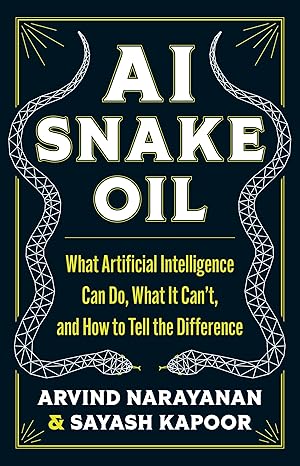
Johns Hopkins University Press, Published on April 30, 2024. ISBN-10: 1421449226
Teaching with AI by José Antonio Bowen and C. Edward Watson is a practical guide that helps educators understand and harness artificial intelligence in their classrooms. The authors explore how AI is transforming education and offer concrete strategies for using AI tools effectively while addressing concerns about academic integrity. They argue that as AI reshapes how we think and work, skills like critical thinking and information literacy become even more crucial. This comprehensive resource serves as a roadmap for teachers navigating the future of education in an AI-powered world.

Jossey-Bass, Published on Sept. 6, 2023. ISBN-10: 1394219245
AI and the Future of Education by Priten Shah is a practical guide that addresses teachers’ concerns about artificial intelligence in education. Drawing from his Harvard education background, Shah presents AI not as a threat but as a valuable educational tool. The book shows educators how to leverage AI for administrative tasks, lesson planning, and student engagement while addressing ethical considerations like privacy and bias. This resource helps educators and education leaders transform AI from an intimidating unknown into an essential classroom asset.

Princeton University Press, Published on September 24, 2024. ISBN-10: 069124913X
AI Snake Oil: What Artificial Intelligence Can Do, What It Can’t, and How to Tell the Difference by Arvind Narayanan and Sayash Kapoor. This book critically examines the hypes of AI that some companies use for marketing and explains how they should be separated from the actual capabilities of AI. The authors use their technical expertise and real-world examples to help readers understand where AI truly excels and where its limitations lie. The book’s central argument is that while AI has achieved remarkable success in some areas, many claimed AI applications are what they call “AI snake oil” – solutions that are oversold, ineffective, or fundamentally flawed.

Publisher: Portfolio. Published on April 2, 2024. ISBN-10: 059371671X
Co-Intelligence: Living and Working with AI by Ethan Mollick emphasizes the urgency of engaging and working effectively alongside AI in professional and personal contexts. The author, a professor at the Wharton School known for his research on innovation and entrepreneurship, explores how to harness AI as a collaborative tool rather than viewing it as either a threat or a magical solution. The book provides concrete strategies for using AI tools like large language models to enhance human capabilities in areas such as writing, analysis, creativity, and problem-solving, while also acknowledging their limitations. Mollick draws on extensive research and real-world examples to illustrate how AI can serve as an intellectual partner, amplifying human intelligence rather than replacing it.



